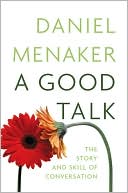Category Books
- Fiction Books & Literature
- Graphic Novels
- Horror
- Mystery & Crime
- Poetry
- Romance Books
- Science Fiction & Fantasy
- Thrillers
- Westerns
- Ages 0-2
- Ages 3-5
- Ages 6-8
- Ages 9-12
- Teens
- Children's Books
- African Americans
- Antiques & Collectibles
- Art, Architecture & Photography
- Bibles & Bible Studies
- Biography
- Business Books
- Christianity
- Computer Books & Technology Books
- Cookbooks, Food & Wine
- Crafts & Hobbies Books
- Education & Teaching
- Engineering
- Entertainment
- Foreign Languages
- Game Books
- Gay & Lesbian
- Health Books, Diet & Fitness Books
- History
- Home & Garden
- Humor Books
- Judaism & Judaica
- Law
- Medical Books
- New Age & Spirituality
- Nonfiction
- Parenting & Family
- Pets
- Philosophy
- Political Books & Current Events Books
- Psychology & Psychotherapy
- Reference
- Religion Books
- Science & Nature
- Self Improvement
- Sex & Relationships
- Social Sciences
- Sports & Adventure
- Study Guides & Test Prep
- Travel
- True Crime
- Weddings
- Women's Studies
A Good Talk: The Story and Skill of Conversation »

Authors: Daniel Menaker
ISBN-13: 9780446540025, ISBN-10: 0446540021
Format: Hardcover
Publisher: Grand Central Publishing
Date Published: January 2010
Edition: (Non-applicable)
Author Biography: Daniel Menaker
Daniel Menaker has been a part of America's life of letters for almost forty years. As a writer, he has met and talked to thousands of people about their work and their lives. He is widely read and well versed in psychological literature and practices and, as an editor at Random House, has had countless meetings and other exchanges with writers, agents, public figures, and ordinary people. His own writing has appeared in the New Yorker, the New York Times, and Slate;he lives in New York with his wife and their two children.
Book Synopsis
A GOOD TALK is an analysis of and guide to that most exclusively human of all activities— conversation.
Drawing on over forty years of experience in American letters, Menaker pinpoints the factors that drive and enliven every good conversation: the vagaries (and joys) of subtext; the deeper structure and meaning of conversational flow; the subliminal signals that guide our disclosures and confessions; and the countless other hurdles we must clear along the way. Moving beyond self-help musings and "how to" advice, he has created a stylish, funny, and surprising book: a celebration of "the most excusively human of all activities."
In a time when conversation remains deeply important— for building relationships, for relaxing, even for figuring out who we are— and also increasingly imperiled (with Blackberries and texting increasingly in vogue), A GOOD TALK is a refreshing celebration of the subtle adventures of a good conversation.
The Barnes & Noble Review
On any given day, everyone -- even a writer like me who toils in relative solitude -- engages in some sort of conversation with others. Whether we're ordering a coffee or attending a business meeting, family, friends, strangers and colleagues present myriad opportunities to talk. Daniel Menaker sees these interactions, whether simple or complex, as forms of art. "Conversations" he states convincingly, " definitely have noble benefits that transcend the merely pragmatic." In short, Menaker believes that a good talk -- attended to correctly -- has the power to ease ills from the personal to the global.
If you imagine that A Good Talk goes on to read like some passionate lament on the increasing scarcity of such interactions and the evils of technology, you’d be wrong. While Menaker does address the encroachment of email, texting and instant messaging on good, old-fashioned face-to-face chatting, the central premise is to illuminate the parts of conversation (in his terms, survey, discovery, risks and roles) what they reveal about the participants.
To illustrate this, Menaker doesn't settle for any single strategy -- his approach is comprehensive. He taps the epistles and barstool interactions of the historically loquacious such as Socrates and Montaigne, transcribes a luncheon conversation with a younger writer, and includes a helpful and hilarious section of FAQs (Frequently Arising Quandaries) on what to do when you’ve forgotten someone’s name or are seated next to a bore, or both! He also offers a chapter on how conversation -- and, more importantly, reflecting on it afterthe fact -- produces chemical benefits inthe brain. In keeping with his theory that the accomplished conversationalist must possess three key traits: curiosity, humor and impudence, Menaker peppers the entire narrative with a liberal dose of uproarious personal anecdotes and observations.
The overall effect is as satisfying as a long talk with a particularly intelligent friend, with plenty of food for later thought. The only thing left to say? “Thank you for a lovely time Mr. Menaker. I look forward to continuing the conversation.”
--Reviewed by Lydia DishmanTable of Contents
Subjects
 Philosophy
Philosophy  Linguistics & Semiotics
Linguistics & SemioticsNonfiction
 Psychology
Psychology  Clinical Psychology
Clinical PsychologyNonfiction
 Social Sciences
Social Sciences  General & Miscellaneous
General & MiscellaneousPhilosophy
 Linguistics & Semiotics
Linguistics & Semiotics  Pragmatics & Discourse Analysis
Pragmatics & Discourse AnalysisPsychology & Psychotherapy
 Clinical Psychology
Clinical Psychology  Psychotherapy
PsychotherapyPsychology & Psychotherapy
 Psychological Disorders
Psychological Disorders  Psychotherapy
PsychotherapyReference
 Etiquette
Etiquette  Conversation -> Technique
Conversation -> TechniqueScience & Nature
 Social Sciences
Social Sciences  General & Miscellaneous
General & MiscellaneousSelf Improvement
 Relationships
Relationships  Social Interactions in Relationships
Social Interactions in RelationshipsSelf Improvement
 See All
See All  Relationships
RelationshipsMedical Books
 Psychology & Psychotherapy
Psychology & Psychotherapy  Clinical Psychology
Clinical PsychologyMedical Books
 Psychology & Psychotherapy
Psychology & Psychotherapy  Psychological Disorders
Psychological DisordersNonfiction
 Reference
Reference  Etiquette
Etiquette
